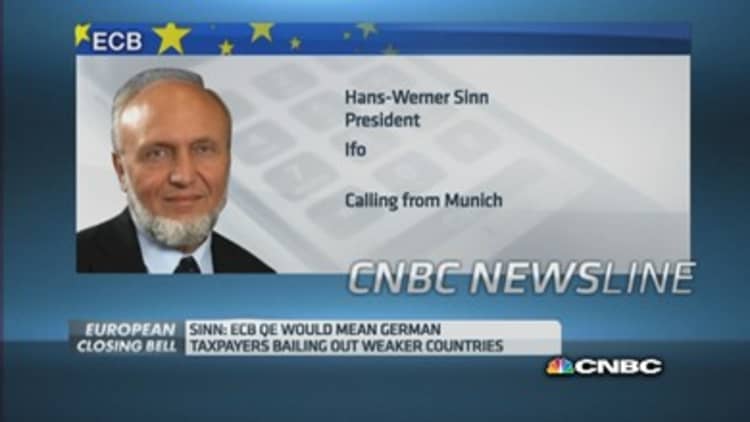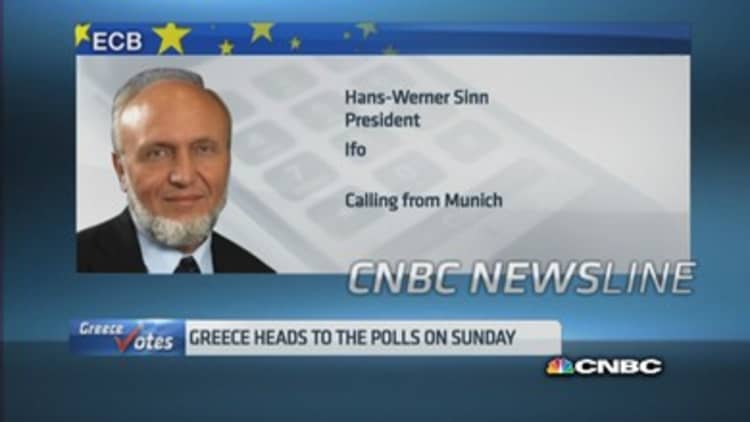
One of Europe's most influential economists has warned that the quantitative easing measures seen being unveiled by the European Central Bank (ECB) this week could create deep market volatility, akin to what was seen after the Swiss National Bank abandoned its currency peg.
"There was so much capital flight in anticipation of the QE to Switzerland, that the Swiss central bank was unable to stem the tide, and there will be more effects of that sort," the President of Germany's Ifo Institute for Economic Research, Hans-Werner Sinn, told CNBC on Monday.
Read MorePrepare for a 'mini-drop' in volatility this week
This week, the ECB holds its two-day policy meeting and is widely seen unveiling a U.S. Federal Reserve-type government bond-purchasing program, known as quantitative easing or QE.
Sinn, a fierce critic of QE, said the launch of such a program would bring more market volatility, of the kind seen on Thursday after the Swiss National Bank abandoned its euro/Swiss franc floor.
"He (ECB President Mario Draghi) will do it, and what will the markets do, they will happy to be able to sell the government bonds, which they consider as partly toxic and they will have a lot of cash. What will they do – they will buy real estate, there could be a revival of the real estate market but they will primarily try to take it abroad. And they have already begun doing that - what you see in Switzerland," Sinn told CNBC.

In a chaotic few minutes after the Swiss central bank's announcement on Thursday, the Swiss franc soared by around 30 percent in value against the euro and 25 percent against the U.S. dollar. The move also hit equity markets hard, with the Swiss benchmark stock index falling by more than 10 percent on the day at one point.
On Monday, Sinn said that a ECB government bond-buying program would make markets "happy", but that it was not the right way to go about bailing out the euro zone.
"If we want to help governments that are in trouble let's do it – but let the parliaments decide rather than this technocratic body, the ECB council. All these (QE) measures go way beyond monetary policy – these are bailout operations to help banks and states which are unable to cope with normal rates of interest," Sinn told CNBC.


